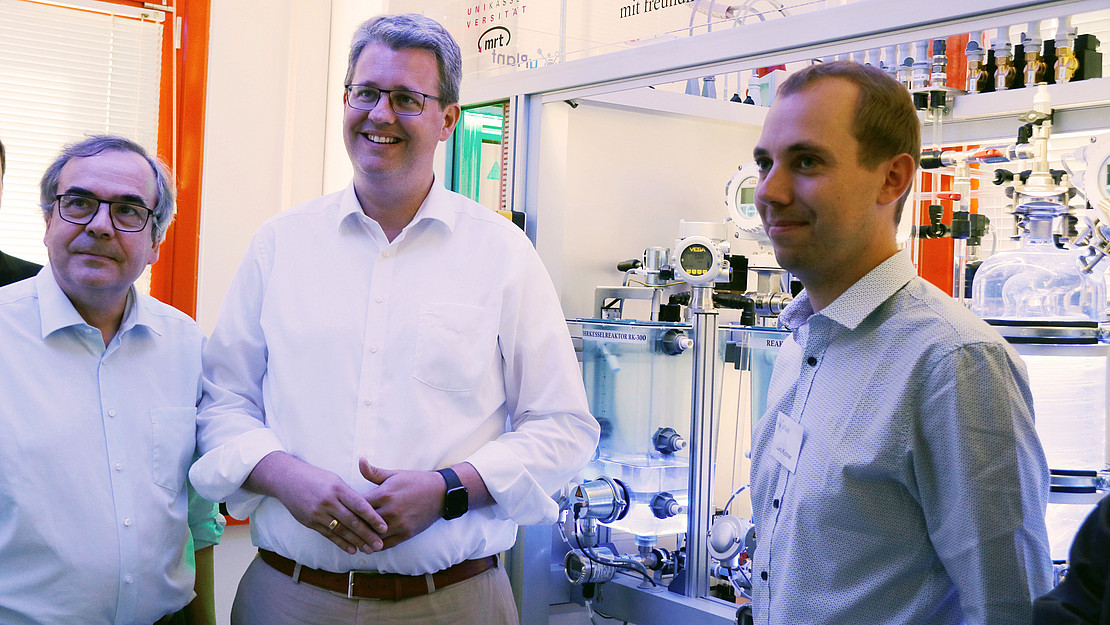This page contains automatically translated content.
State Secretary Burghardt visits the model factory
 Image: University of Kassel.
Image: University of Kassel.Fully automated production processes can be simulated and researched in the factory in model format. "Digitization is a cross-cutting issue based on technological progress. The fully automated 'Factory of the Future' shows what is already technically possible today through the digitization of industry. In addition, students gain valuable practical experience here in an interdisciplinary working environment."
The "μPlant" model factory was largely developed by and with students. Mechanical engineering and mechatronics students from Kassel use the plant to learn how to develop, control and monitor systems for Industry 4.0. "μPlant" consists of six communicating stations as well as autonomous mobile robots and a control station from which the plant is monitored. It enables fully automated production processes to be mapped and methods to be explored, for example, for the early detection (or even prediction) of faults in an automated, networked and heterogeneous factory. In this way, critical situations can be provoked in a targeted manner, repeated as often as desired, analyzed and methods for improvement developed. "The model factory is a particularly successful example of how students at the University of Kassel receive training in present and future technologies," said University President Prof. Dr. Reiner Finkeldey.
In Kassel, State Secretary Burghardt met with the university's president and with ITeG members Prof. Dr. Kurt Geihs (Department of Distributed Systems) and Prof. Dr-Ing. Ludger Schmidt (Department of Human-Machine Systems Engineering) as well as Prof. Peter Dräxler (Head of the university's IT Service Center). "At the Scientific Center for Information Technology Design, researchers from Kassel have been working for many years on the question of how information technology can be responsibly designed in the interest of society in such a way that its innovation potential is exploited, but also its risks are recognized and avoided," Burghardt said. The focus of ITeG research activities is on the interdisciplinary design of socially desirable information and communication technology from a socio-technical perspective. By bundling competencies from computer science, ergonomics, technology law, business informatics, gender and diversity research, sociology and business psychology, the ITeG is an interdisciplinary research network geared toward sustainably strengthening the research profile of the University of Kassel. These activities are embedded in a digitization strategy of the university, in which digital infrastructures and information management for research, teaching and administration are advanced.
The University of Kassel is particularly broad and interdisciplinary in the field of digitization, information technology and AI. This applies to research as well as to teaching and administration. "At the University of Kassel, we have expertise that is unique throughout Hesse when it comes to classifying the topics of information technology and AI in an interdisciplinary and comprehensive social manner, assessing risks in data protection and developing socially acceptable solutions for the world of work and private use," said President Prof. Reiner Finkeldey. In recent years, the university has received several awards at the "Hessian University Award for Excellence in Teaching" for digitally supported teaching and learning. Among others, the model factory "μplant" at the Department of Measurement and Control Engineering was awarded.